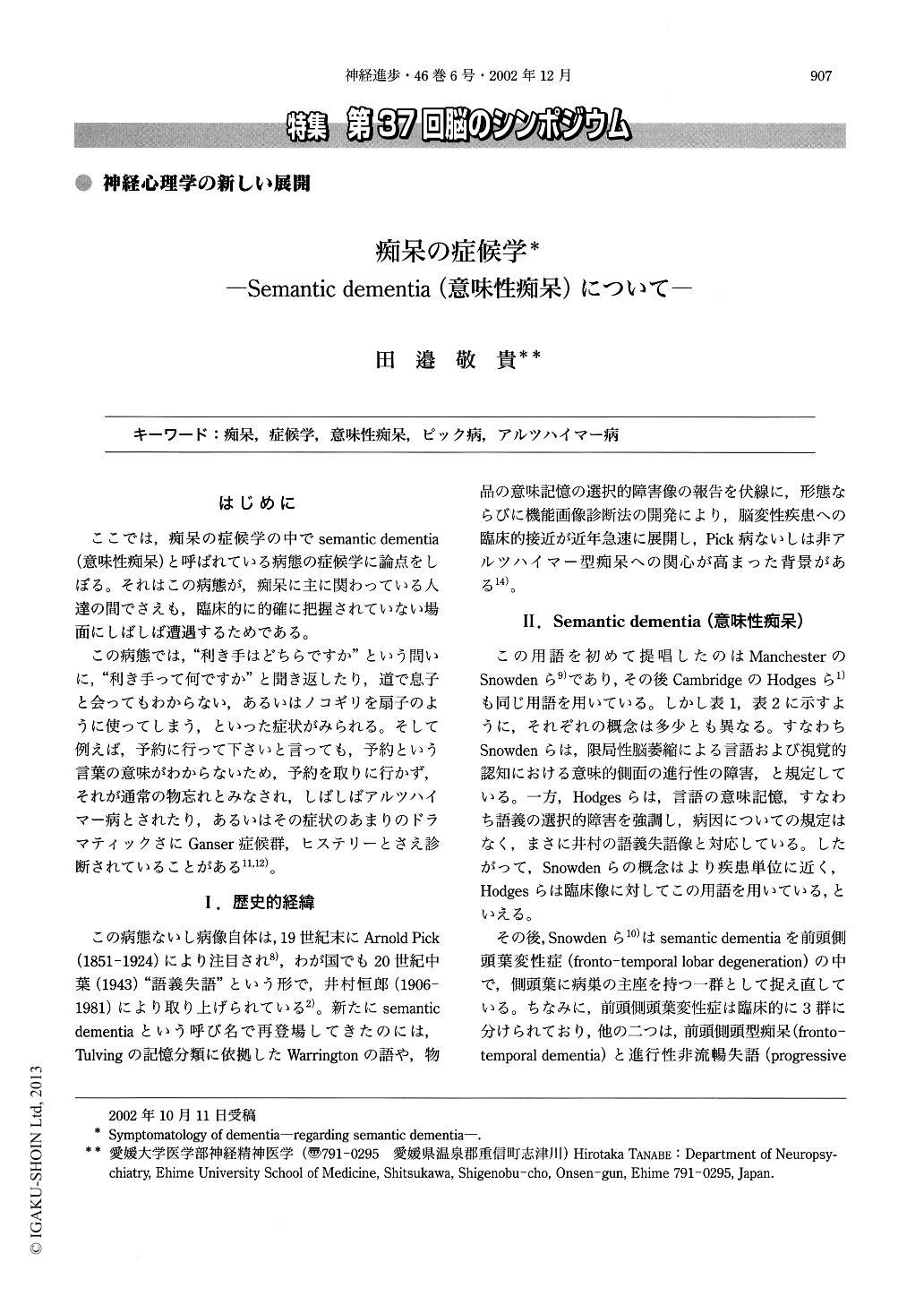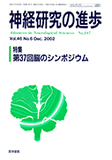Japanese
English
- 有料閲覧
- Abstract 文献概要
- 1ページ目 Look Inside
はじめに
ここでは,痴呆の症候学の中でsemantic dementia(意味性痴呆)と呼ばれている病態の症候学に論点をしぼる。それはこの病態が,痴呆に主に関わっている人達の間でさえも,臨床的に的確に把握されていない場面にしばしば遭遇するためである。
この病態では,“利き手はどちらですか”という問いに,“利き手って何ですか”と聞き返したり,道で息子と会ってもわからない,あるいはノコギリを扇子のように使ってしまう,といった症状がみられる。そして例えば,予約に行って下さいと言っても,予約という言葉の意味がわからないため,予約を取りに行かず,それが通常の物忘れとみなされ,しばしばアルツハイマー病とされたり,あるいはその症状のあまりのドラマティックさにGanser症候群,ヒステリーとさえ診断されていることがある11,12)。
“Semantic dementia” is characterized by the core clinical features such as progressive breakdown in language and visual perception attributed to loss of semantic information. Here, I introduced the actual clinical pictures and argued the following two points 1) cases of semantic dementia are often diagnosed erroneously even by specialists in dementia as having Alzheimer's disease, because the unique memory problems are considered to be ordinary forgetfulness, or as Ganser's syndrome, that is, a hysterical state, because of their such dramatic features.

Copyright © 2002, Igaku-Shoin Ltd. All rights reserved.


